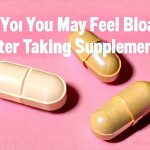Many people diligently incorporate multivitamins into their daily routine hoping to bolster their health and wellbeing. Yet, for some, this seemingly beneficial act is accompanied by an unwelcome side effect: bloating. This uncomfortable sensation – a feeling of fullness, tightness, and sometimes even visible abdominal distension – can be perplexing, especially when the intention was to improve bodily function. It’s crucial to understand that experiencing bloating after taking a multivitamin isn’t necessarily indicative of something being wrong with your health or the vitamin itself; rather, it often points to an interaction between the supplement and individual physiological factors. Identifying these interactions is key to mitigating the issue and enjoying the intended benefits of supplementation.
The reasons behind this phenomenon are multifaceted, ranging from ingredient sensitivities to how our bodies process various nutrients. It’s also important to recognize that ‘multivitamin’ isn’t a monolithic category. Formulations vary wildly in terms of ingredients, dosages, and delivery methods – all of which can contribute to bloating in different ways. This article will explore the common causes for post-multivitamin bloating, offering insights into why it happens and potential strategies to minimize discomfort. Understanding these factors empowers individuals to make informed decisions about their supplementation choices and optimize their overall digestive health.
The Role of Ingredients & Formulation
The composition of a multivitamin is arguably the most significant factor contributing to bloating. Many ingredients commonly found in multivitamins can, for some people, cause gastrointestinal distress when taken in concentrated doses. – Iron is a frequent culprit; even relatively small amounts can disrupt gut flora and lead to constipation, which then manifests as bloating. – Similarly, magnesium, while essential, has a laxative effect at higher dosages, potentially causing diarrhea or loose stools that contribute to discomfort. – Other potential triggers include certain B vitamins (particularly niacin), vitamin C in large quantities (ascorbic acid), and even zinc. It’s not necessarily about lacking these nutrients; it’s the sudden influx of concentrated forms that can overwhelm the digestive system.
Beyond individual ingredients, the formulation itself plays a role. Fillers and binders – substances used to hold the pill together or improve its texture – are often poorly digested and can ferment in the gut, producing gas and causing bloating. Consider tablets versus capsules; capsules tend to dissolve more quickly and may be better tolerated by individuals with sensitive stomachs. Furthermore, coated pills might delay absorption, potentially leading to a buildup of nutrients in one area of the digestive tract before being processed. Look for multivitamins that prioritize minimal fillers and utilize highly bioavailable forms of vitamins and minerals – those readily absorbed by the body.
Finally, the presence of artificial additives like dyes or preservatives can also contribute to bloating in sensitive individuals. These substances aren’t inherently nutritious and can disrupt gut microbiome balance, fostering an environment conducive to gas production and discomfort. Opting for multivitamins with natural ingredients and minimal processing is often a good strategy for minimizing digestive upset. If you struggle with discomfort, it’s important to understand why you might react to healthy foods.
Timing & Method of Consumption
How and when you take your multivitamin significantly impacts its likelihood of causing bloating. Taking a multivitamin on an empty stomach can exacerbate issues, as there’s nothing else to buffer the concentration of nutrients hitting your digestive system at once. This is especially true for iron-containing formulas. Always take multivitamins with food – this slows down absorption, dilutes the nutrient concentration, and allows the body to process everything more efficiently. The type of food also matters; pairing your multivitamin with a meal containing healthy fats can further enhance absorption and minimize discomfort.
Beyond timing, consider how you’re consuming the vitamin. – Swallowing large pills whole can sometimes be difficult for individuals with sensitive digestive systems. – If possible, look for chewable or easily-divisible options. – Alternatively, opening the capsule and mixing the contents into a smoothie or yogurt can also aid digestion. Hydration is critical; drinking plenty of water alongside your multivitamin helps move things along in the digestive tract and prevents constipation. It’s best to avoid lying down after meals even briefly, as this can worsen symptoms.
The method of delivery—tablet, capsule, gummy, liquid —also influences how quickly the body processes the nutrients. Gummies, while appealing, often contain added sugars which can contribute to bloating for some individuals. Liquid vitamins are generally absorbed more rapidly but may also be more likely to cause stomach upset if taken without food. It’s about finding a delivery method and consumption strategy that aligns with your individual digestive sensitivity.
Identifying Your Personal Triggers
Pinpointing the exact cause of post-multivitamin bloating requires a bit of detective work. The first step is carefully reviewing the ingredient list of your current multivitamin. Are there any ingredients you suspect might be causing issues? If so, consider switching to a different formula that omits those components. Another effective strategy is an elimination diet – temporarily removing the multivitamin from your routine and observing whether bloating subsides. Then, reintroduce it slowly while monitoring for symptoms.
Keep a food diary alongside your vitamin intake. This helps you identify potential interactions between your diet and the supplement. – Are you more likely to experience bloating when taking the multivitamin with certain foods? – Does timing play a role (e.g., morning vs. evening)? – Tracking these details can provide valuable clues about your personal triggers.
Consider consulting with a healthcare professional or registered dietitian. They can help you assess your nutritional needs, evaluate the ingredients in your multivitamin, and recommend alternative formulations that are better suited to your digestive health. Don’t self-diagnose; seek expert guidance if bloating persists or is accompanied by other concerning symptoms. Sometimes something feels stuck which can be a related symptom.
Gut Health & Microbiome Balance
A healthy gut microbiome – the trillions of bacteria residing in our digestive tract – plays a vital role in nutrient absorption and overall digestive function. An imbalance in gut flora (dysbiosis) can significantly increase susceptibility to bloating, especially after taking multivitamins. The concentrated nutrients from vitamins may disrupt existing microbial communities or feed undesirable bacteria, leading to gas production and discomfort.
Supporting your gut health is therefore crucial for minimizing post-multivitamin bloating. – Incorporate probiotic-rich foods into your diet (yogurt, kefir, sauerkraut, kimchi). – Consider taking a probiotic supplement alongside your multivitamin, but do so under the guidance of a healthcare professional. – Consuming prebiotic fibers – found in fruits, vegetables, and whole grains – feeds beneficial bacteria and promotes a healthy microbiome.
Reducing stress levels is also important. Chronic stress can negatively impact gut health, making you more prone to digestive issues. Regular exercise, mindfulness practices, and adequate sleep all contribute to a healthier gut-brain connection. Prioritizing gut health isn’t just about minimizing bloating; it’s about optimizing your overall wellbeing and maximizing the benefits of your multivitamin supplementation. Some days you eat everything and feel nothing, but that doesn’t mean gut health isn’t important.
Optimizing Absorption & Bioavailability
Even if you identify and eliminate potential ingredient triggers, suboptimal absorption can still lead to bloating. The body may struggle to effectively utilize the nutrients in the multivitamin, resulting in undigested material fermenting in the gut. Enhancing bioavailability – the extent to which a nutrient is absorbed and utilized by the body – is key to preventing this.
Look for multivitamins that contain highly bioavailable forms of vitamins and minerals. For example: – Methylfolate is more readily used by the body than folic acid. – Magnesium citrate or glycinate are better absorbed than magnesium oxide. – Vitamin D3 is preferable to vitamin D2.
Pairing your multivitamin with healthy fats can also improve absorption, particularly for fat-soluble vitamins (A, D, E, and K). Finally, addressing any underlying digestive issues – such as low stomach acid or enzyme deficiencies – can significantly enhance nutrient uptake. If you suspect these issues, consult with a healthcare professional to determine appropriate testing and treatment options. Remember that optimal absorption isn’t just about taking the vitamin; it’s about ensuring your body is equipped to effectively utilize its contents. If you also experience shortness of breath after meals, consult a doctor. It’s important to note that sometimes bloating can occur without a sore throat.


















